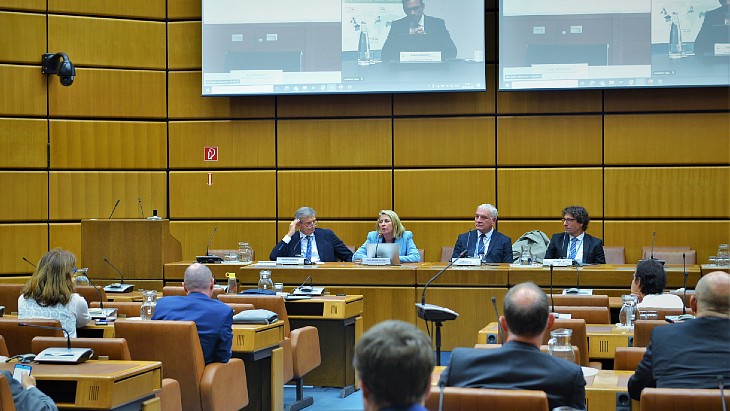Keynote speakers François Jacq, General Administrator of the French Alternative Energies and Atomic Energy Commission (CEA), and Luc Rémont, EDF Chairman and CEO, along with my fellow panellists, Sama Bilbao y León, Nigel Cann, Dejan Paravan and Vakis Ramany, shared their invaluable insights and experiences, shedding light on the future of nuclear energy in Europe and beyond.
This discussion yielded several key takeaways that emphasise the critical factors influencing the success of nuclear energy programmes:
1. The Three Pillars of Success: Nigel Cann, managing director of Sizewell C in the UK, explained that the foundation of a prosperous nuclear programme rests on three pillars: the stability of design, the stability of the supply chain, and the stability of the people involved and continuity of knowledge. This holistic approach is essential to ensure the seamless and efficient construction and operation of nuclear facilities.
2. Success Stories Matter: Success begets success. To inspire and motivate progress within the nuclear industry, it is crucial to highlight and celebrate success stories. As highlighted by Dejan Paravan, CEO of GEN energija in Slovenia, these achievements not only demonstrate the feasibility of nuclear energy but also serve as benchmarks for future endeavours.
3. The 'Invisible Man' of Risk: Risk plays a pivotal role in decision-making within the nuclear industry. It often explains why the discussions are long, and decisions slow. Vakis Ramany, Senior VP of EDF for International Nuclear Development, emphasised the importance of properly evaluating, allocating and managing risk among stakeholders in order to overcome hurdles and ensure efficient development of nuclear projects.
4. Government Support and Investment: We can all agree that clear and unwavering government support is essential for the advancement of nuclear energy. However, Sama Bilbao y Léon, Director General of World Nuclear Association, called for an embodiment of this support into concrete investments in nuclear projects. Government commitment in the form of financial backing and regulatory support is crucial to driving progress in the sector.
5. Supply Chain Stability: Developing a stabilised and robust supply chain is of paramount importance for the success of nuclear programmes. This should be a shared objective by all stakeholders of nuclear projects, from operators to governments, and obviously suppliers. A reliable supply chain is essential to meet the stringent demands of nuclear projects, from construction to operation and maintenance. The panellists all agreed that urgent efforts need to be put in place, starting today, in order to provide visibility to the supply chain and therefore be ready to deliver the hundreds of projects in the 2030s.
6. European Fleet is the Way Forward: Building a European fleet of reactors emerges as the most feasible strategy to address the challenges of new nuclear capacities in Europe. This collaborative approach allows for the optimisation of resources, knowledge sharing, and, most importantly, harnessing the benefits of the "fleet effect" - a concept where the collective strength of a fleet enhances the performance and safety of individual reactors.
These insights underscore the complex and multifaceted landscape of nuclear energy development. Collaboration, thoughtful risk management, and unwavering government commitment emerge as vital components in shaping the future of nuclear energy, not only in Europe but also on a global scale.
As we move forward, it is imperative that we continue these critical discussions and work collectively to shape the future of nuclear energy. The challenges are significant, but the potential benefits for our energy security, climate goals, and economic growth are equally substantial. I am fully convinced that, by building upon the lessons learned from this side-event, we can pave the way for a sustainable and prosperous nuclear energy future.





_87299.jpg)
_52351.jpg)






